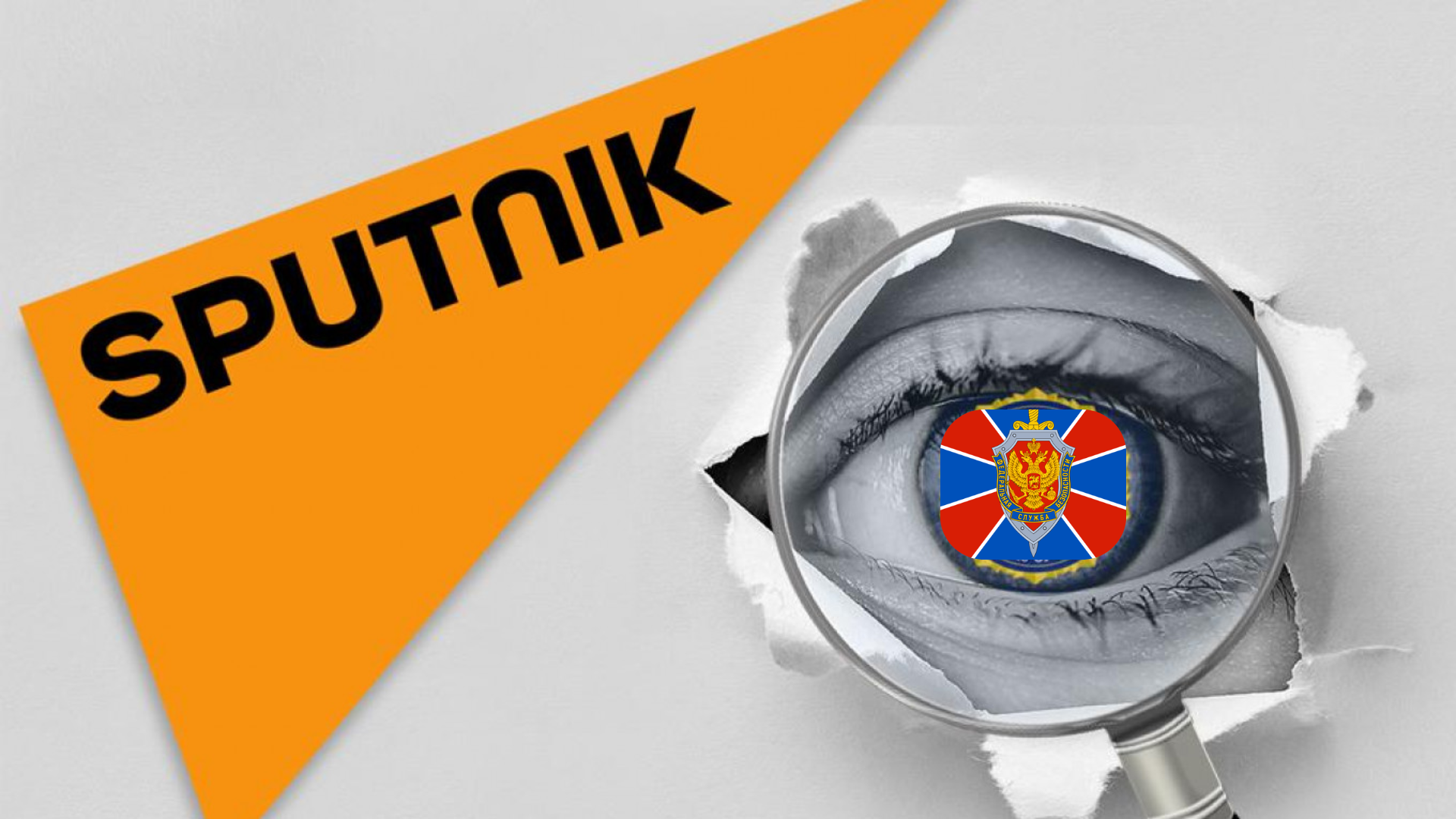Not all journalists carry notebooks, some carry instructions from Moscow

by Ulvi Narimanli
Truth has become a battleground, and so has the media. What appears as news often conceals agendas. Behind some press credentials lie state interests, and behind certain headlines, the fingerprints of intelligence agencies. This is not speculation; it’s documented strategy—one that Russia has refined through decades of practice. Azerbaijan’s recent detention of two Sputnik Azerbaijan employees is not an attack on journalism. It’s a defense of sovereignty. It is, in fact, a response to an old Soviet tactic now reborn in digital disguise. The world needs to stop confusing disinformation for dissent—and understand the difference between journalism and a covert operation.
Few states have mastered this craft like the Soviet Union—and, today, the Russian Federation. Far from serving as independent sources of public information, Russian state media have long functioned as tools of intelligence, influence, and foreign destabilization.
The tradition of “journalist-intellectuals” forged in the Soviet era has not only survived—it has evolved. Outlets like Sputnik, which present themselves as legitimate media organizations, are in reality instruments of hybrid warfare. The facade of journalism masks their true role: geopolitical manipulation.
The Soviet KGB, particularly its foreign intelligence branch, understood that control over the information space could be more powerful than conventional espionage. In the 1970s and 1980s, declassified documents show that many Soviet “journalists” abroad doubled as intelligence operatives. In some cases, the number of “media” personnel exceeded the embassy staff in host countries. After the USSR collapsed, this tactic went dormant—but only briefly. With time, it was restructured and relaunched under the guise of “open media platforms,” and Sputnik became its flagship.
Formed under the Rossiya Segodnya media group, Sputnik’s mission goes far beyond news dissemination. It creates “alternative truths,” shapes foreign public opinion, influences elections, and builds local networks for Russian intelligence. Its leadership often hails from Russia’s security services or Kremlin-affiliated media. One such figure, Vitaly Denisov, was expelled from Moldova and Azerbaijan due to subversive information operations. Notably, he previously ran Sputnik Moldova and other regional offices before heading Sputnik Azerbaijan.
More recently, Igor Kartavych, head of Sputnik Azerbaijan, and Yevgeny Belousov, its editor-in-chief, were detained in Azerbaijan. Authorities cited espionage—not journalism—as the basis for their arrest. The Ministry of Foreign Affairs was unequivocal: both men were collaborators with Russia’s Federal Security Service (FSB). Their actions, the Ministry stated, had nothing to do with press freedom and everything to do with violating Azerbaijani national security.
In today’s media environment, espionage doesn’t require secret briefcases or encrypted radio signals. It is carried out in headlines, manipulated commentary, doctored imagery, and selective “facts.” The line between a journalist and a covert operative can be blurred—by design.
The European Union recognized this threat early. Following the invasion of Ukraine, the EU officially banned Sputnik and RT, describing them not as media but as tools of hybrid warfare. Similar bans followed in Canada, the UK, Ukraine, Australia, and many countries across Latin America. In total, Sputnik has been banned or blocked in 32 countries. The reasons are consistent: it is not a journalistic organization, but a state-backed mechanism of disinformation and foreign interference.
Azerbaijan’s foreign ministry, in response to an open letter by the Union of Journalists of Russia defending the detained Sputnik employees, denounced the letter as a blatant distortion of facts. The ministry cited multiple examples—like Denisov’s expulsion and various reports by the Council of Europe, EUvsDisinfo, and EDMO—to underscore that Sputnik functions as a strategic asset of Russian foreign policy, not an outlet for journalistic integrity.
The hypocrisy of the Union of Journalists of Russia is not lost here. It has turned a blind eye to rampant violations of press freedom in Russia itself. Over 50 journalists have died under suspicious circumstances in Russia since 1992, among them prominent figures like Anna Politkovskaya, Pavel Sheremet, and Paul Klebnikov. At least 26 journalists have been imprisoned in the last five years alone. Since the Ukraine war began, the Kremlin has taken a sledgehammer to independent journalism. Censorship is now systemic. Dissent is criminalized.
In contrast, Azerbaijan has emphasized its commitment to press freedom while defending its national sovereignty. “These individuals are not journalists—they are operatives using press credentials to interfere in the domestic affairs of sovereign states,” the Foreign Ministry rightly stated. Sputnik is not under attack for its views, but for weaponizing media to conduct foreign intelligence operations.
This is not a question of freedom of expression. It is a question of state-backed sabotage.
By detaining Kartavych and Belousov, Azerbaijan has sent a clear message: sovereignty cannot be undermined under the pretext of journalism. In doing so, Baku joins a growing international consensus that democratic societies must defend their information space from hybrid threats—whether through bans, legal action, or public exposure.
What the world needs is not the defense of pseudo-journalists, but a principled stand against foreign disinformation, however well-disguised. The Sputnik case is a litmus test for whether we can still tell the difference between journalism and espionage.
Here we are to serve you with news right now. It does not cost much, but worth your attention.
Choose to support open, independent, quality journalism and subscribe on a monthly basis.
By subscribing to our online newspaper, you can have full digital access to all news, analysis, and much more.
You can also follow AzerNEWS on Twitter @AzerNewsAz or Facebook @AzerNewsNewspaper
Thank you!
